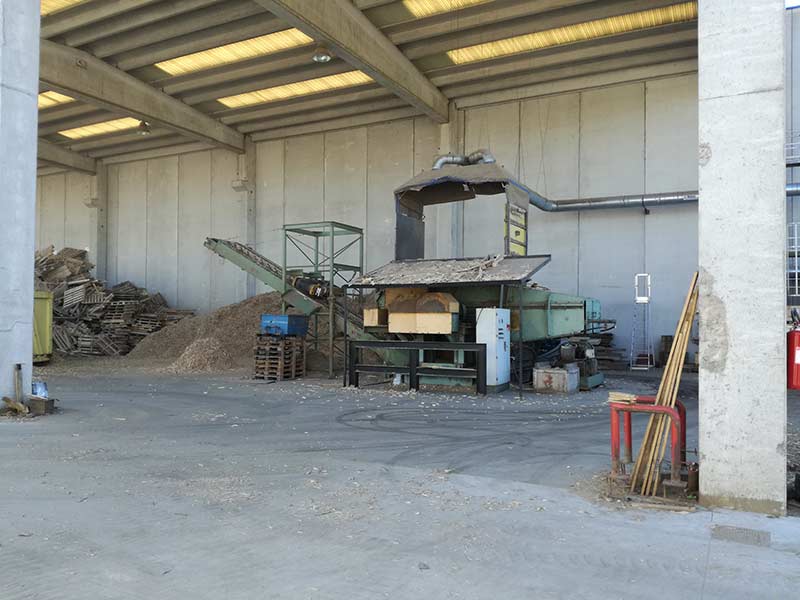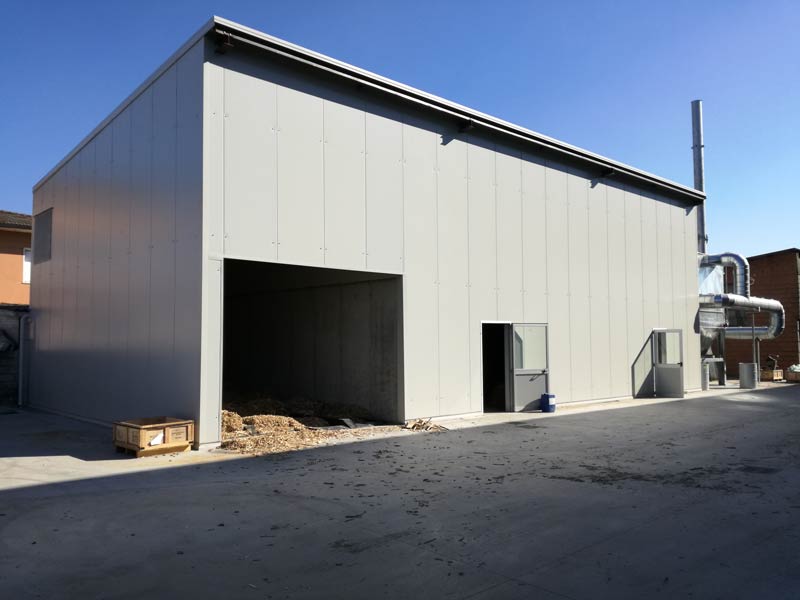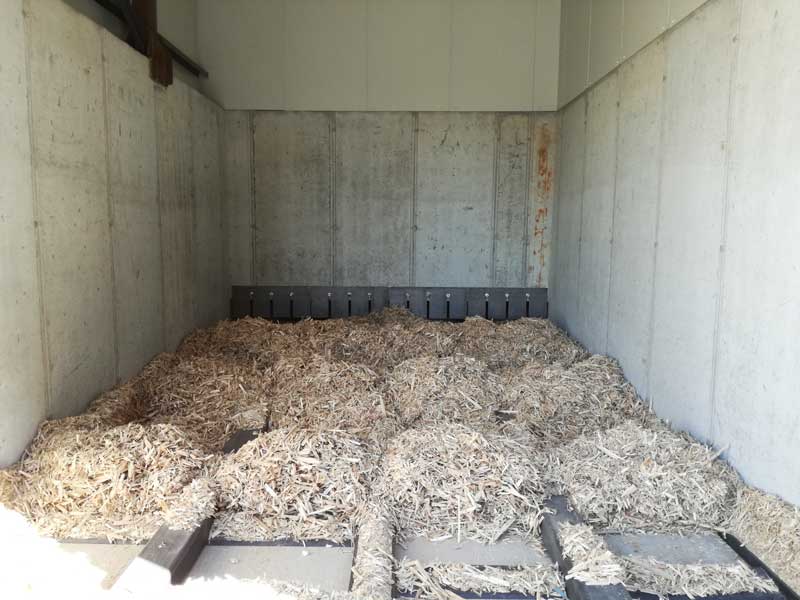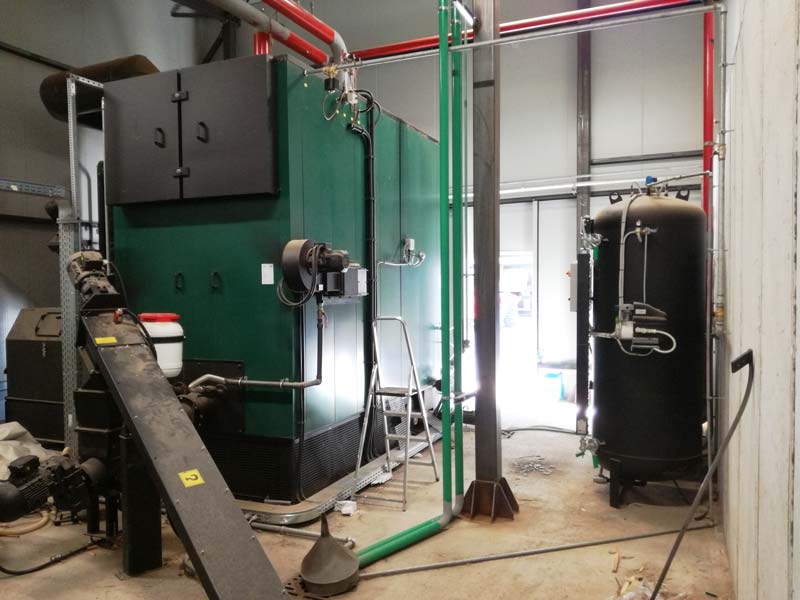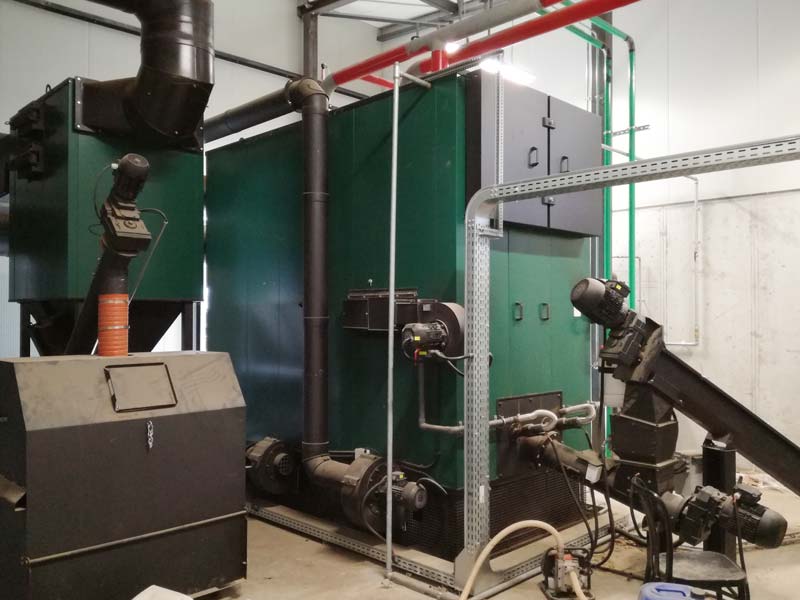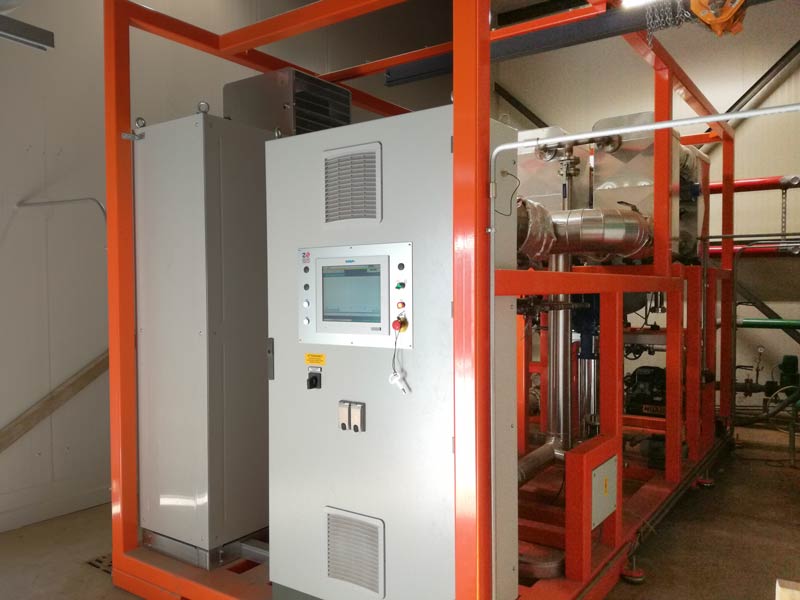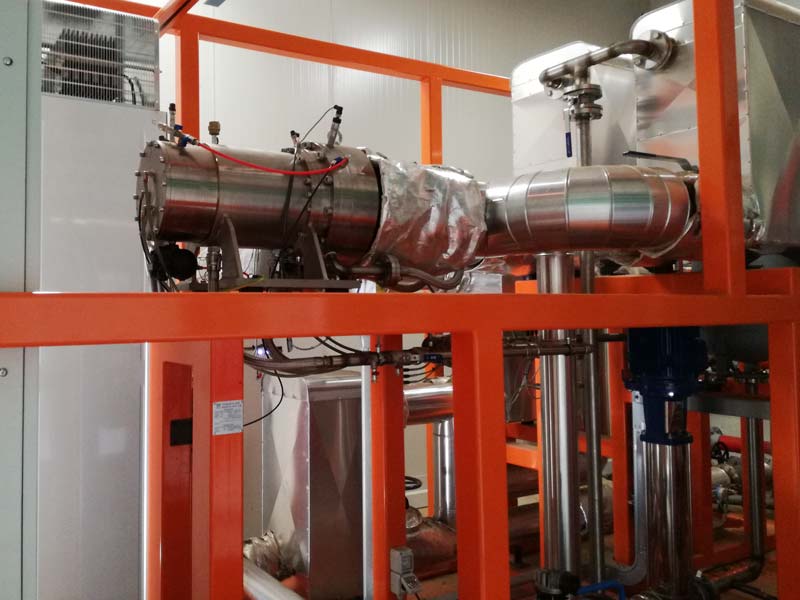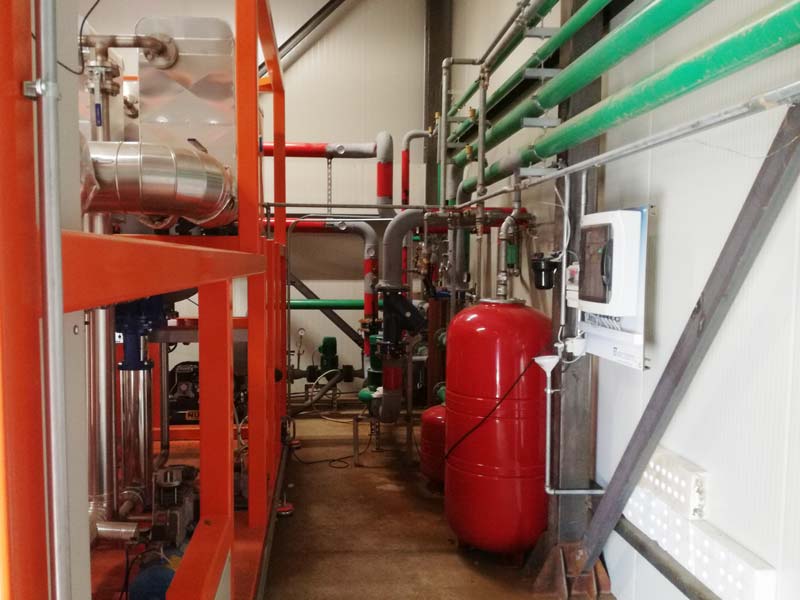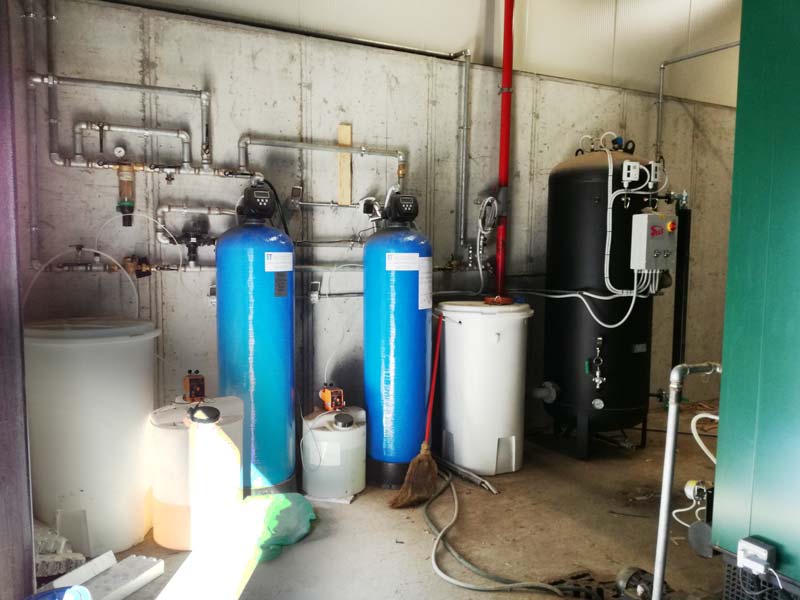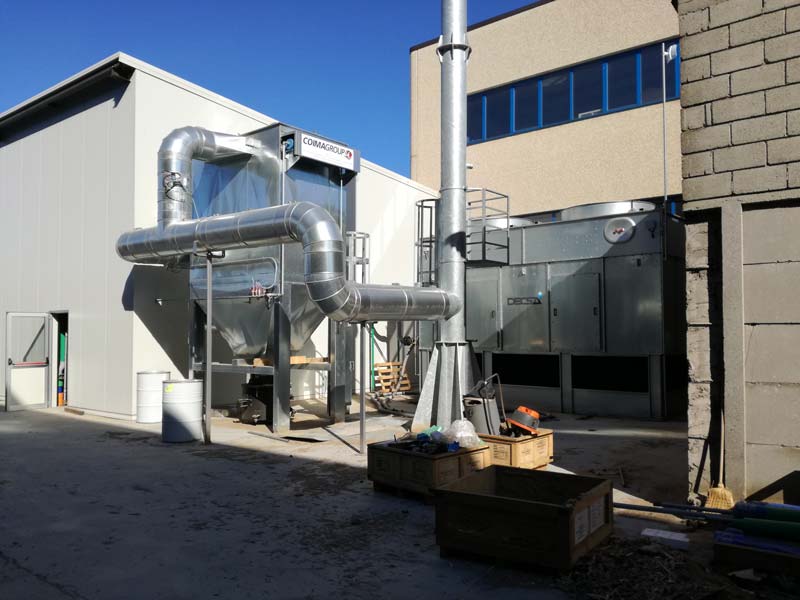The client who commissioned this plant is a firm from a small town in the province of Brescia, in northern Italy, dealing in wooden shipping pallets and fully authorized for transport, stockage and disposal of wooden waste. The waste biomass it acquires in its line of work (mainly wooden pallets no longer usable for shipping) is burned into a 1-MWe movable-grate boiler by Herz which feeds heat to a ZE-150-LT ORC module.
The versatility of the ZE ORC modules in handling partial loads has come to fruition in this plant, where the generator has been derated to 135 kWe from the nominal 150 to meet the client needs. An economizer placed on the flue line also recovers part of the heat to dry and preheat the wooden biomass.
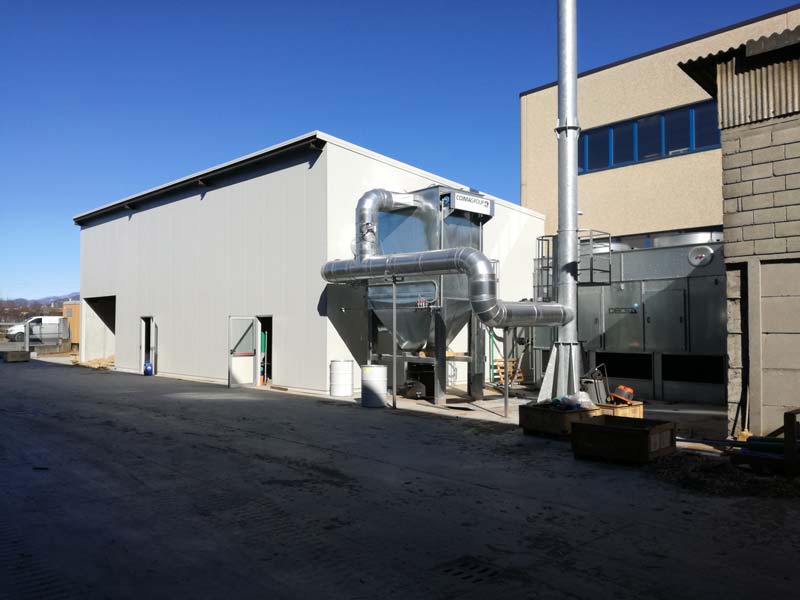
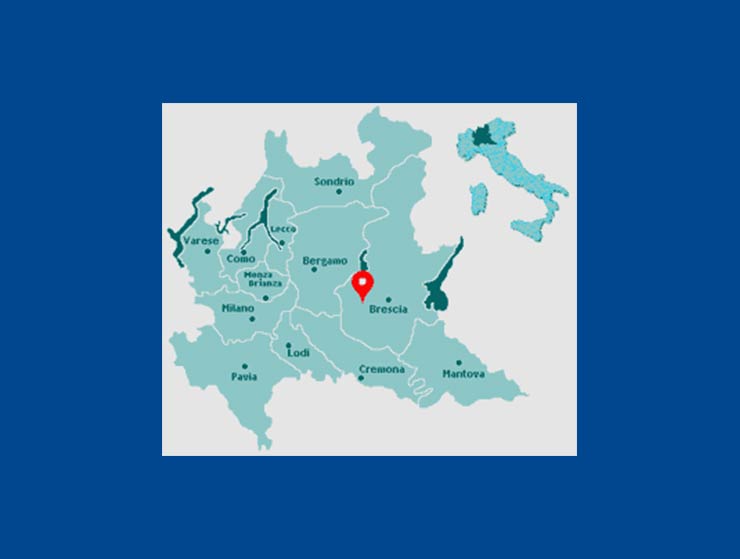 The system, as every ORC module we supply, is mounted on a self-supporting frame (“skid”) that includes exchangers,turbogenerator, and control panel. The skid, in indoor configuration, is housed in a purpose-built building that also hosts the boiler and the biomass hopper, while excess heat is dissipated by an external evaporative cooling tower. The system is entirely remote operated and does not require the presence of an operator.
The system, as every ORC module we supply, is mounted on a self-supporting frame (“skid”) that includes exchangers,turbogenerator, and control panel. The skid, in indoor configuration, is housed in a purpose-built building that also hosts the boiler and the biomass hopper, while excess heat is dissipated by an external evaporative cooling tower. The system is entirely remote operated and does not require the presence of an operator.
It is also interesting to note the financing formula that has been used to build the plant. With our collaboration, the client has been put in contact with an E.S.Co. that financed the whole plant in exchange for its ownership and earnings for the first years of the plant’s life, during which the client will supply the biomass at zero cost. On expiry of the payback period, plant ownership will be given back to the client, which will have then acquired the plant practically for free.
Wooden biomass is an environmentally compatible and renewable fuel, with zero CO2 impact, as the CO2 released when burning is the same CO2 the plants captured during their growth.

